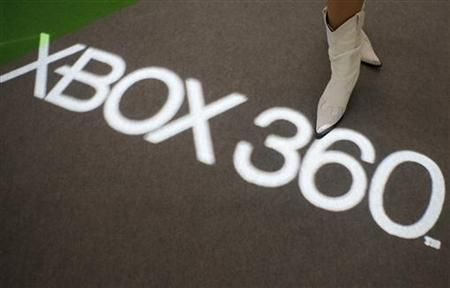Xbox Co-Founder Slams Microsoft For ‘Stupid’ Business, Says Apple Could Easily Take Over Game Industry
Brown says that he predicts "massive failure and losses" for console developers in the next generation of gaming hardware.

Harsh words for Microsoft’s (NASDAQ:MSFT) video game business and development model have usually been reserved for independent industry stalwarts like Valve’s Gabe Newell. But in a blog post this week, former Microsoft employee and Xbox co-founder Nat Brown took issue with his former employer, going so far as to echo Newell’s claim that the game industry has made itself vulnerable to outside competition from powerful tech companies like Apple (NASDAQ:AAPL).
The post, tellingly titled “Stupid, stupid xBox,” ridiculed Microsoft for misunderstanding the modern video game marketplace.
“My gripe is that, as usual, Microsoft has jumped its own shark and is out stomping through the weeds planning and talking about far-flung future strategies in interactive television and original programming partnerships with big, dying media companies, when their core product, their home town is on fire, their soldiers, their developers, are tired and deserting, and their supply lines are broken,” Brown said.
The “original programming partnerships” Brown referred to are part of Microsoft’s plans to broaden the Xbox brand past video game content exclusively into other forms of “interactive content” and home entertainment -- something the company elaborated on earlier this week, when it announced its newly minted Xbox entertainment studio in Los Angeles.
But Brown insisted that his “gripe” is not with Microsoft’s plan to focus on “broader content/entertainment business” for its “living-room-connected device”; rather, he suggested Microsoft has basically shot itself in the foot by creating an inhospitable ecosystem for game developers.
While companies like Apple, Google (NASDAQ:GOOG), and Valve have all created relatively simple distribution platforms and easily available software development kits (SDKs) for prospective game makers, Microsoft has rested on the laurels of its early success -- charging exorbitant licensing and marketing fees that push all but the most powerful game companies like Activision Blizzard (NASDAQ:ATVI), Electronic Arts (NASDAQ:EA) and Ubisoft (EPA:UBI) out of the premium console gaming market. The console’s “creaky, slow and full-of-shit” user interface, meanwhile, has made access to much of the device’s most interesting content more of a chore than a form of entertainment, once again undermining what he sees as a potentially vibrant ecosystem for creative and artistically driven game development today.
"Microsoft," Brown said, "you are idiotic to have ceded not just indie game developers but also a generation of loyal kids and teens to making games for other people's mobile devices.
“Because these two critical issues -- user experience and indie content -- are not nearly in order, and I see big investments in future interactive content happening, as well as idiotic moves to limit used games or put harder content protection into place than exists in mobile or tablets – 'I' predict massive failure and losses here," he concluded.
Brown did not spare Microsoft’s main competitors, Sony (NYSE:SNE) and Nintendo (PINK:NTDOY), from equal condemnation, however. Really, he attributed any of Microsoft’s relative success in capturing the market for the previous generation of game consoles to the “stumbling failures” of its two rivals, suggesting that all three of the major console developers suffer from “a complete lack of tactical versus strategic understanding of the long game of the living room,” which leaves them unprepared for looming competition.
“Apple, if it chooses to do so, will simply kill Playstation, Wii U and xBox by introducing an open 30 [percent]-cut app/game ecosystem for Apple TV,” Brown said. “I already make a lot of money on iOS – I will be the first to write apps for Apple TV when I can, and I know I’ll make money.”
Brown left Microsoft in 1999, so his perspective might be less insider-y than he’d like to think. But his criticisms are hardly unique; many a game developer has taken issue with console makers’ stringent policies on everything from used game sales to the high barriers of entry they create to making and buying games alike.
In the next console generation expected to come out some time this year, the startup OUYA has already reconfigured its console’s production cycle plans to mirror those of more popular consumer electronics like smartphones and tablets. It may not be able to offer the same quality of games as the next PlayStation or Xbox console, but lower prices for gamers and game developers alike are hard to resist.
© Copyright IBTimes 2024. All rights reserved.






















